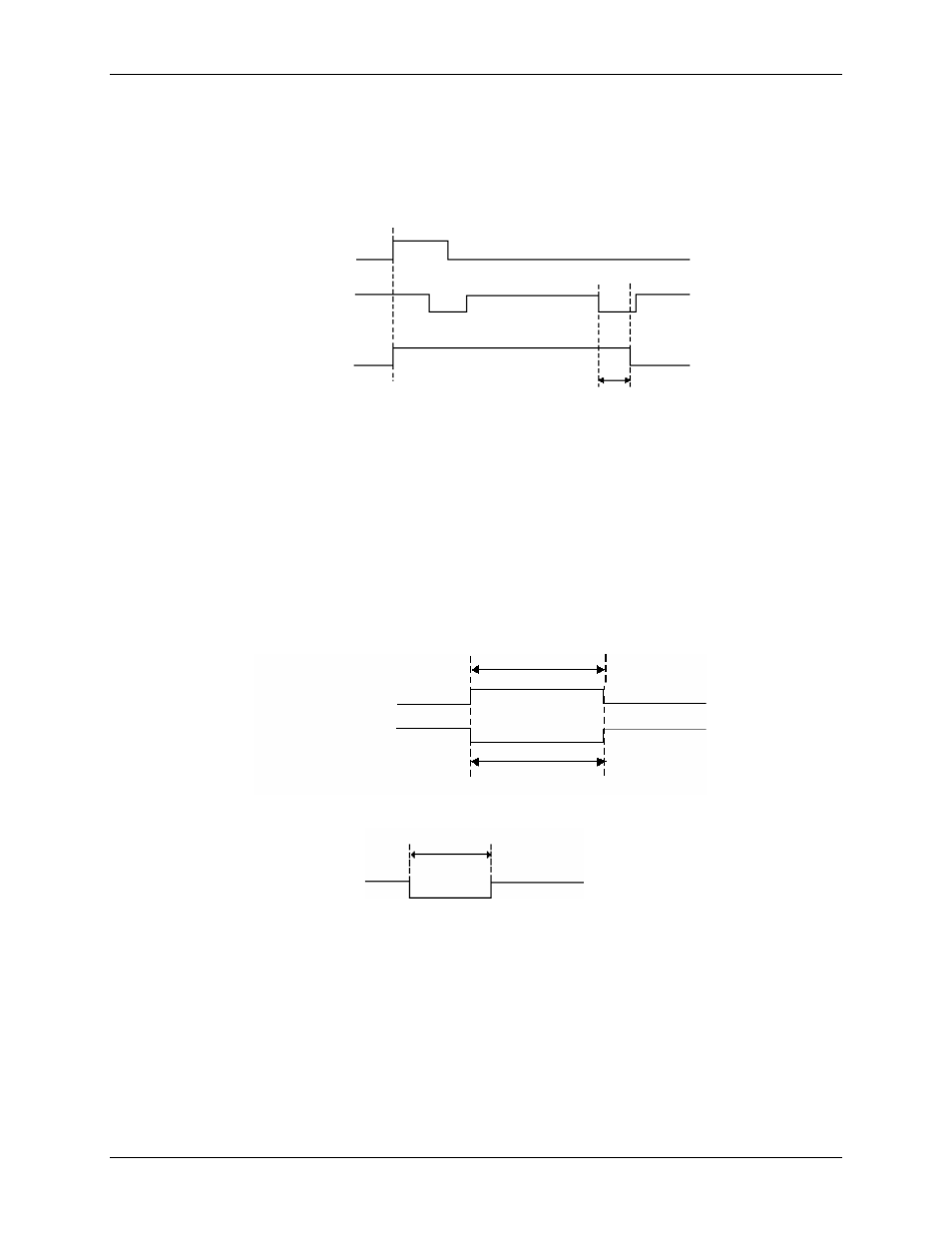Ssh signal, A/d convert signal, A/d pacer gate signal – Measurement Computing PCI-DAS6071 User Manual
Page 21

PCI-DAS6071 User's Guide
Functional Details
21
SSH signal
The SSH signal can be used as a control signal for external sample/hold circuits. The SSH signal is a
programmable polarity pulse that is asserted throughout a channel scan. The state of this signal changes after the
start of the last conversion in the scan. The SSH signal may be routed via software selection to any of the
AUXOUT pins. Figure 13 shows the timing for the SSH signal.
Figure 13. SSH signal timing
A/D CONVERT signal
The A/D CONVERT signal indicates the start of an A/D conversion. It is available through software selection
as an input to any of the AUXIN pins (defaulting to AUXIN0) or the DAQ-Sync DS A/D CONVERT input and
as an output to any of the AUXOUT pins.
When used as an input, the polarity is software selectable. The A/D CONVERT signal starts an acquisition on
the selected edge. The selected edge (either rising of falling) of the convert pulses must be separated by a
minimum of 0.8 µs to remain within the 1.25 MS/s conversion rate specification.
Refer to Figure 7 and Figure 10 for the relationship of A/D CONVERT to the DAQ sequence. Figure 14 and
Figure 15 show the input and output pulse width requirements for the A/D CONVERT signal.
Figure 14. A/D CONVERT signal input timing requirement
Figure 15. A/D CONVERT signal output timing requirement
The A/D CONVERT signal is generated by the on-board pacer circuit unless the external clock option is in use.
This signal may be gated by hardware (A/D PACER GATE) or software.
A/D PACER GATE signal
The A/D PACER GATE signal is used to disable scans temporarily. This signal may be programmed for input
at any of the AUXIN pins.
If the A/D PACER GATE signal is active, no scans can occur. If the A/D PACER GATE signal becomes active
during a scan in progress, the current scan is completed and scans are then held off until the gate is de-asserted.
Start Pulse
t
off
= 10 ns minimum
CONVERT
SSH
t
off
Rising Edge Polarity
t
w
t
w
= 37.5 ns minimum
Falling Edge Polarity
t
w
= 50 ns
t
w
